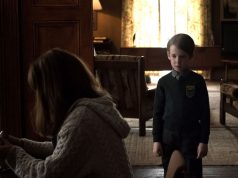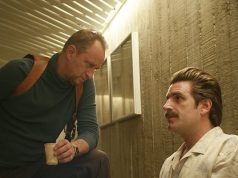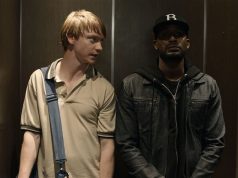The maverick German filmmaker Werner Herzog has often told stories of real people battling nature, themselves, and their sanity. His most famous movies, “Aguirre, Wrath of God” and “Fitzcarraldo,” were set in jungles and primitive lands. His recent documentary “Grizzly Man” followed a mentally unstable man in his quest to live with bears. “Little Dieter Needs to Fly,” his 1997 doc about a Vietnam veteran, recreated the pilot’s jungle ordeal from 30 years earlier.
Now, in “Rescue Dawn,” Herzog returns to that pilot’s story, to the jungle, and to his favorite theme: madness. “Rescue Dawn” is a fictionalized version of “Little Dieter Needs to Fly,” with Christian Bale portraying the German-born American Navy pilot Dieter Dengler, who was shot down over Laos in 1966 and spent six months as a prisoner of war. With nods to “The Great Escape” and “Papillon,” Herzog tells Dieter’s story unromantically and without artifice.
After a beautiful opening score by Klaus Badelt, Herzog greets us with real footage of bombings over Vietnam, then introduces us to Dieter. Stationed in the Gulf of Tonkin in the mid-’60s, before the war began in earnest, Dieter is charismatic and smiling. He and his fellow pilots heckle the survival-training films they’re shown, laughing at techniques like using a large leaf to funnel rainwater into your mouth. What silliness!
Dieter is shot down soon thereafter while on a secret reconnoissance mission, then captured by locals and marched through villages like a pet on a leash. There’s some abuse and torture, none of it shown too graphically. Finally he is deposited into a small prison camp with a handful of fellow POWs: Duane (Steve Zahn), Gene (Jeremy Davies), and three Thai officers.
Dieter and Duane become closest friends in these difficult circumstances, though the latter has begun to despair after wasting away for so long in the camp already. Gene has lost his mind almost entirely, and is emaciated to a horrifying degree. Their captors aren’t generally cruel, and are victims themselves of the war ravaging their homeland, but they’re not exactly permissive, either. At night, the six POWs are bound together at the wrists and ankles to prevent escape.
The others have long since given up any hope of escape. Even if they got out of the camp, the jungle itself — filmed in dark, rich green colors, contrasting against the bleached-out skies — would surely kill them.
But Dieter rallies them, somewhat, and insists he won’t languish in prison. “I’m gonna scram tonight,” he says in his oddly syntaxed English. “This hut? It ain’t no prison.”
Bale’s performance is noteworthy in that it provides further evidence of the Welsh actor’s chameleon-like abilities. Dieter is a vivid character, and Bale’s transformation over the course of the film — from backslapping compatriot to desperate, half-mad refugee — is astonishing.
Just as impressive is Steve Zahn, usually a comic actor, who completely loses himself as the despondent Duane. As for Jeremy Davies, playing crazy, crazy Gene, I admire his commitment — I mean, just LOOK at how skinny he is — but I didn’t always believe he was as loony as he was supposed to be. He seems less like a crazed prisoner and more like an actor pretending to be a crazed prisoner.
Herzog is characteristically matter-of-fact about things, and unsentimental about the death and violence that occur in situations like this. He shoots the film almost like a documentary, with grainy film stock and very little over-dramatization. This is what happened, see. Nothing more, nothing less.
And yet he’s still able to subtly bring out the adventurous elements of the story, the way he would if he were working entirely in the realm of fiction. Even if this story weren’t true, it would still be riveting. Herzog has found inspiration in the wilds of the jungle once again.
B+ (2 hrs., 6 min.; )





